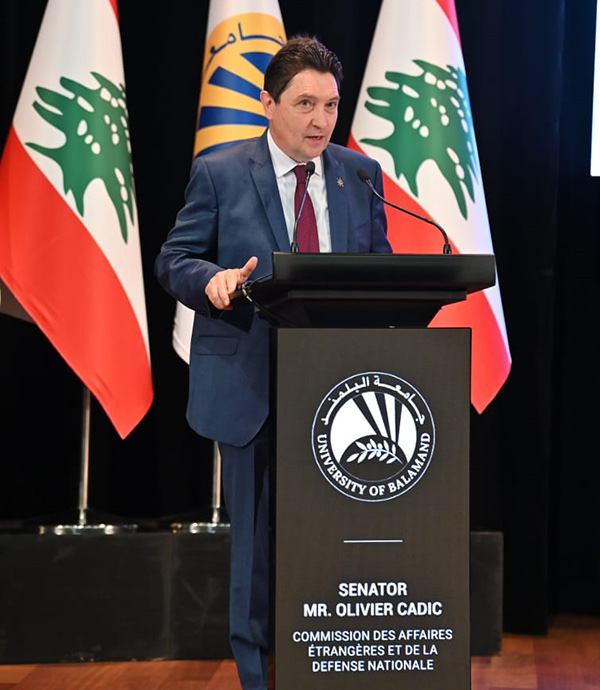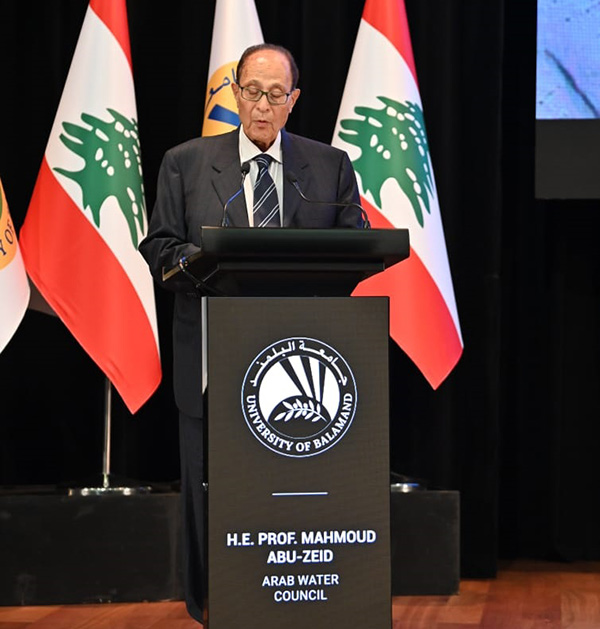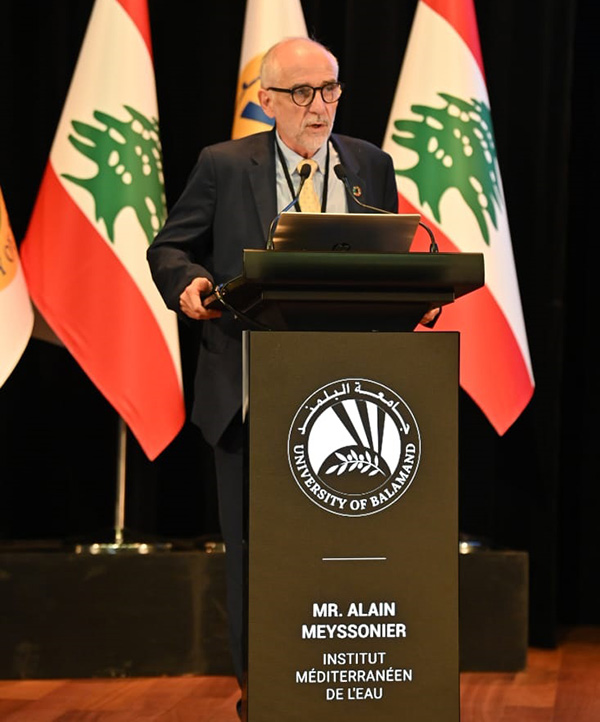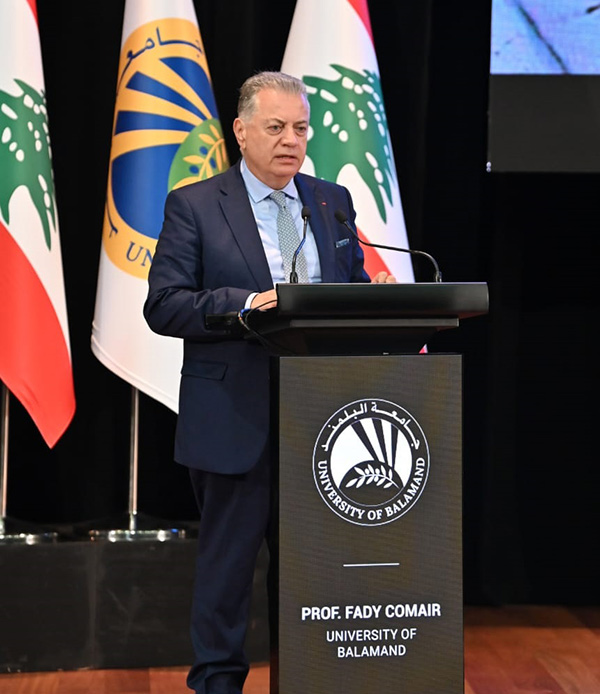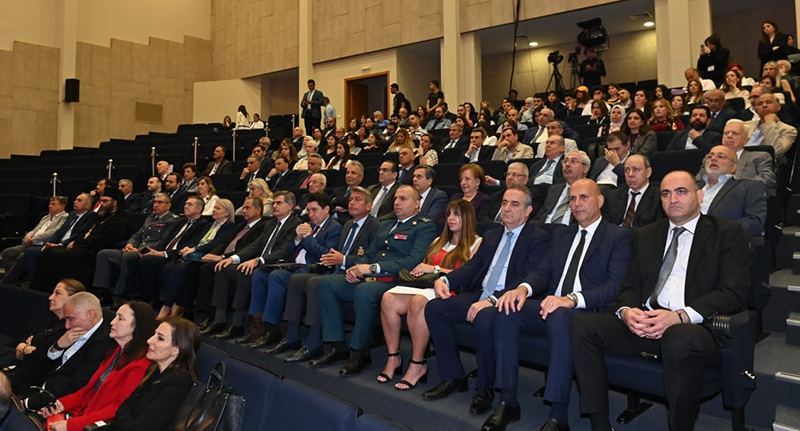Under the high patronage of His Excellency the President of the Republic of Lebanon General Joseph Aoun, and in partnership with The Ministry of Energy and Water, the University of Balamand organized World Water Day 2025, held on April 29 at the Koura Campus, in presence of representatives from the relevant ministries, as well as political, social, environmental, and military figures. The event, titled “Safeguarding Lebanon’s Glaciers”, also commemorated the 50th Anniversary of UNESCO’s International Hydrological Programme (UNESCO-IHP), highlighting the critical importance of preserving Lebanon’s eternal glaciers.
During the event, the University of Balamand, represented by its president Dr. Warrak, signed several strategic Memoranda of Understanding aimed at enhancing cooperation in water research and environmental initiatives with the Arab Water Council, represented by His Excellency Professor Mahmoud Abu Zeid, the Water Embassy, represented by Mrs. Jeanette Pretot, and the Institut Méditerranéen de l’Eau (IME), represented by Mr. Alain Meyssonier.
These partnerships underscore the University of Balamand’s vision and long-standing commitment to addressing the growing water challenges in Lebanon. UOB recognizes the vital importance of water security in national development, and it continues to lead through research, education, and regional cooperation. The University aims to be a key contributor to innovative and sustainable water solutions, especially as Lebanon faces mounting threats from climate change, including the retreat of its glaciers and freshwater sources.
The event featured a series of expert-led panels tackling critical water issues from multiple angles. The first panel commemorated the 50th Anniversary of UNESCO’s International Hydrological Programme (IHP), focusing on Lebanon’s water strategy and highlighting regional cooperation efforts through the proposed ECOMED Academy Network. It also explored UNESCO’s Water Strategy (2022–2029) and the importance of scientific innovation and governance in addressing local water challenges. The second expert panel addressed the Water-Energy-Food-Ecosystem (WEFE) Nexus, presenting integrated solutions to climate resilience and resource management, while encouraging cross-sectoral partnerships, education, and technological innovation.
His Excellency Mr. Joe Saddi, Minister of Energy and Water Lebanon, highlighted the importance of this conference in light of the challenges facing water resources, stating: “The progress witnessed by humanity, especially in the last century, has been met with unprecedented challenges on both the climate and environmental fronts. Climate change has resulted in an increase in drought and desertification.” He emphasized: “As the Ministry of Energy and Water, we are fully prepared to collaborate on this front and to study how to benefit from the resolutions that will be issued today.”
In his speech, Dr. Warrak announced the selection of the University of Balamand as a co-host for the ECOMED Academy, affiliated with UNESCO, based on a decision made by the UNESCO International Hydrological Programme (UNESCO-IHP). He added: “today’s gathering reflects our shared hope and firm commitment to creating a future built on collaboration, innovation, and mutual respect. We are confident that by working together, we can face the challenges ahead and establish a safer, stronger, and more united world for the generations to come.”
For his part, Senator Mr. Olivier Cadic, Vice President de la Commission des Affaires Étrangers et de la Defense Nationale, expressed his pleasure at seeing Lebanon rise with a renewed spirit full of hope and optimism, saying: “I am pleased to return to Lebanon to speak about water-related issues and to reaffirm my full commitment to supporting projects aimed at managing and protecting water resources.” He added: “Water should be a means of bringing people together, a bridge toward peace and cooperation, which is the vision reflected in our diverse environmental projects launched to achieve these goals.”
Mr. Alain Meyssonier, President of the Institut Méditerranéen de l'Eau (IME), emphasized the need to fundamentally reconsider our relationship with water, no longer neglecting it but recognizing it as an essential resource. He added: “From the strategic storage of water in mountain reservoirs to the adoption of prudent and efficient consumption practices across agriculture, industry, and tourism, we must commit to safeguarding this vital resource and ensuring its use is aligned with actual necessity rather than excess.”
H.E. Prof. Mahmoud Abu-Zeid, President of the Arab Water Council (AWC), highlighted Lebanon’s growing water crisis, fueled by climate change and mismanagement. He called for urgent action to protect the country’s glaciers and adopt integrated water resources management. Stressing the role of digital tools and the need for climate resilience, he also emphasized the launch of the Eco Academy, stating: “It is essential to promote education, research, and collaboration between academia and policymakers.”
Prof. Fady Comair, Senior Executive Adviser to the President for Strategic Sustainability and Global Development at the University of Balamand, stated: “This marks the first time that the University of Balamand has organized such a large-scale conference dedicated to water. The event successfully highlighted the importance of preserving Lebanon’s glaciers, which are a vital national treasure and the primary source of both groundwater and surface water.”
Through events such as World Water Day, the University of Balamand reaffirms its role as a center of environmental responsibility and scientific advancement, determined to safeguard Lebanon’s natural resources for future generations.
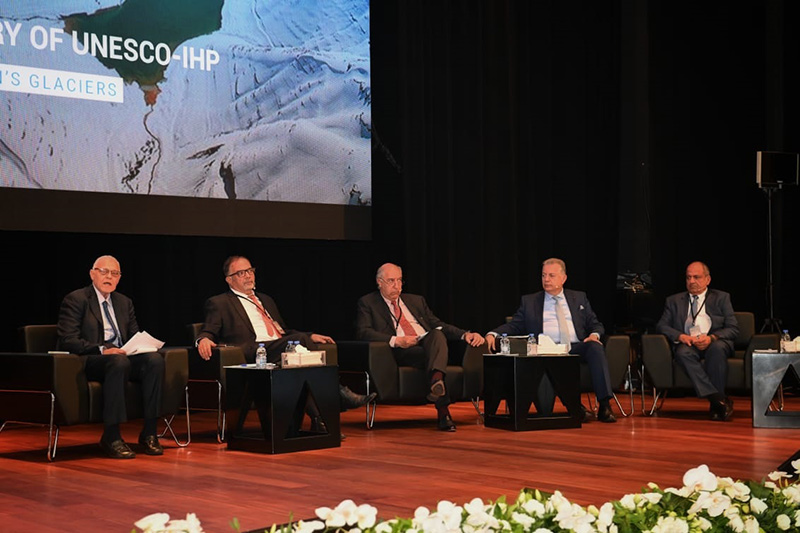
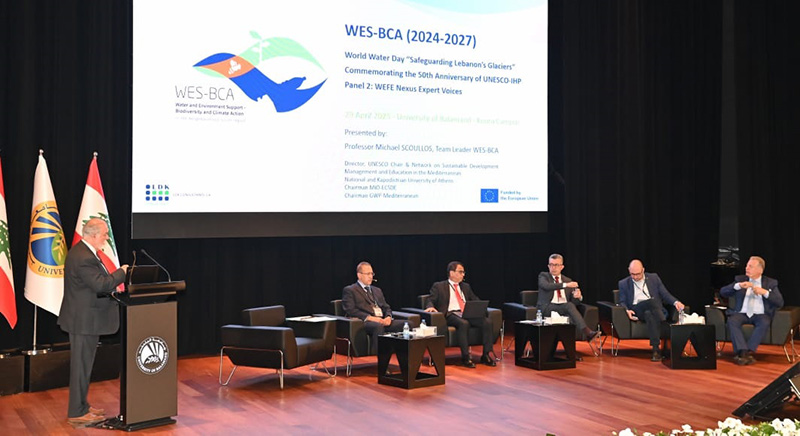
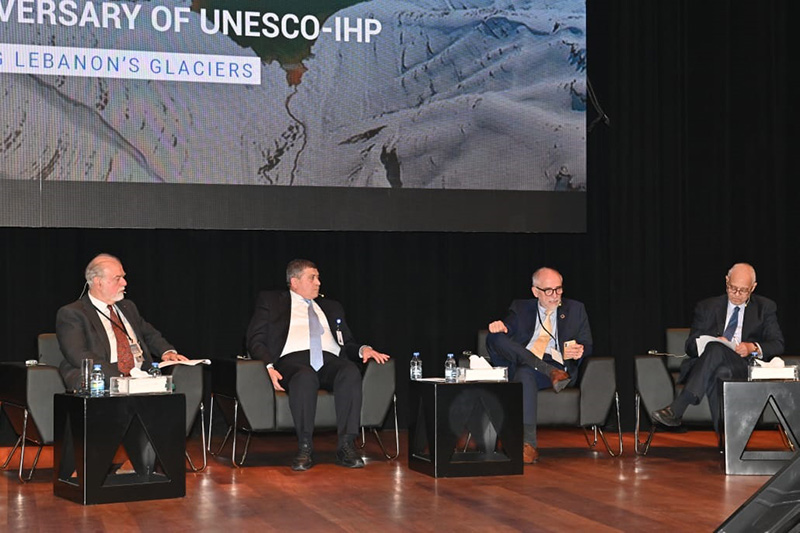
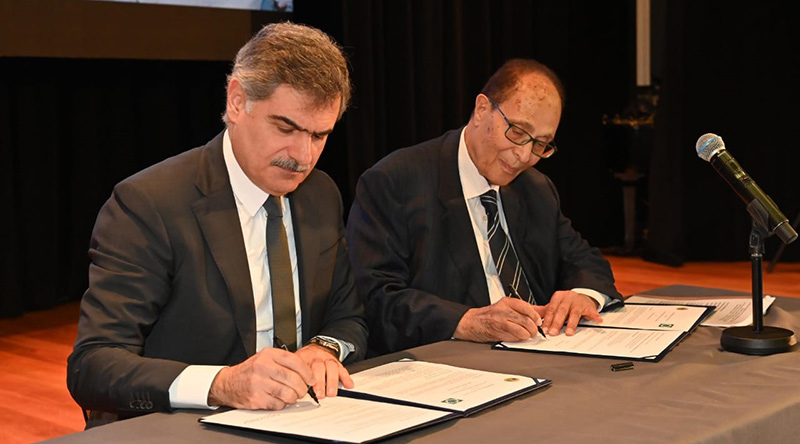
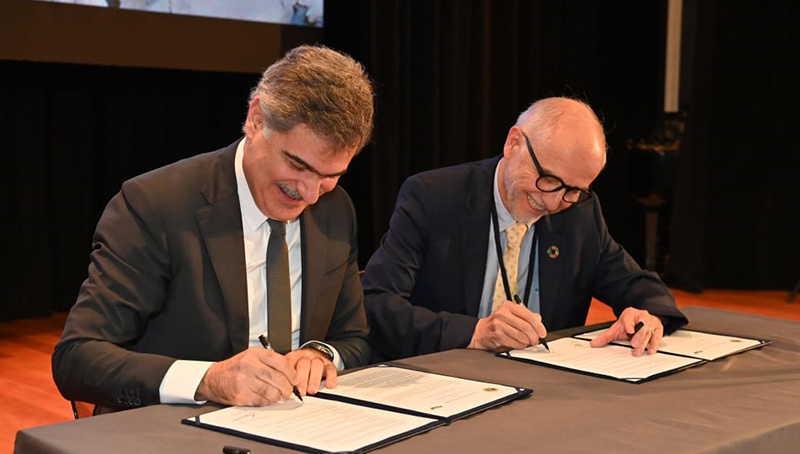
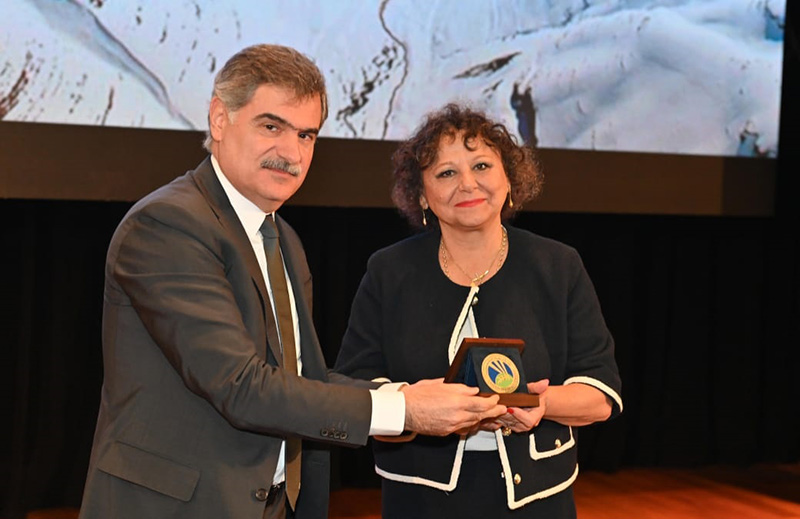
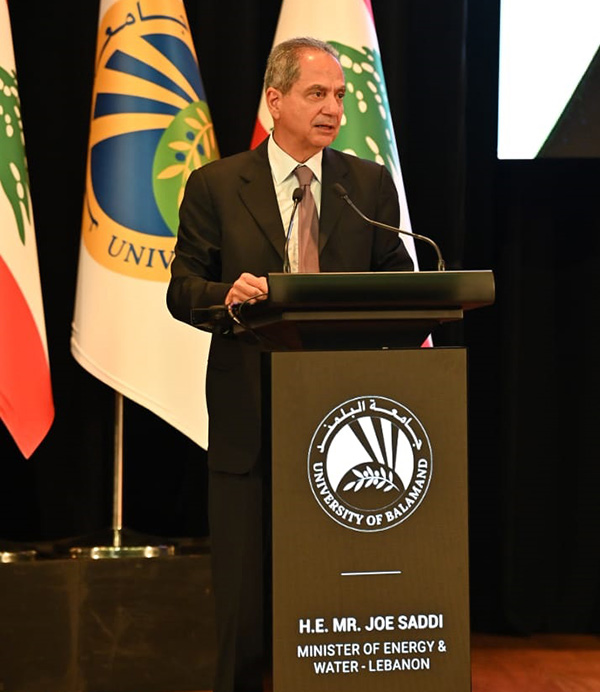
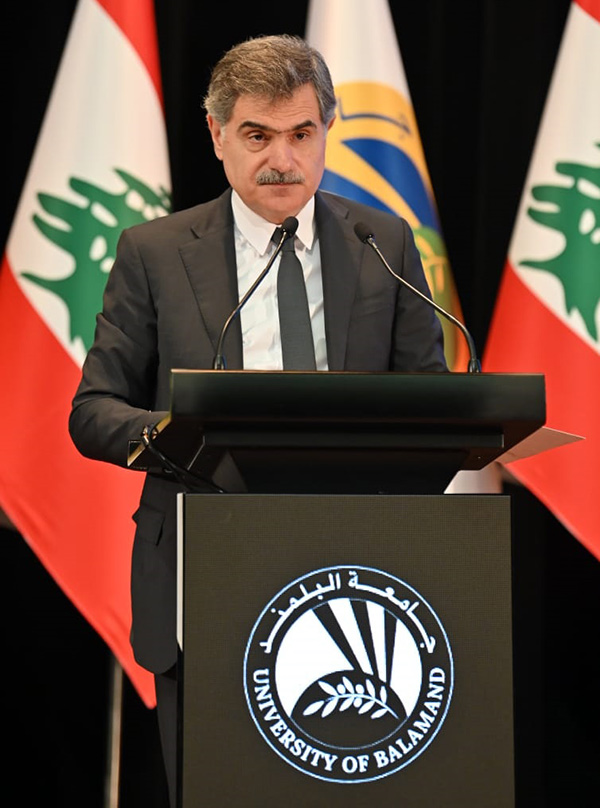
.
